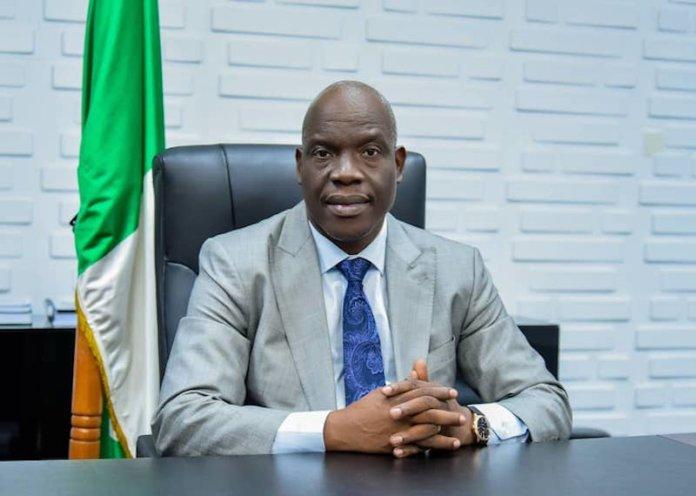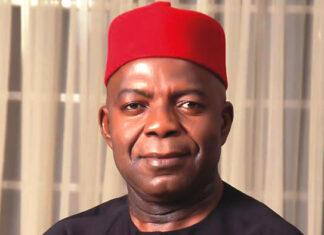The declaration of a state of emergency by the Nigerian National Petroleum Company Limited on crude oil production has yielded a positive outcome with the increase recorded in daily production from 1.25 million barrels per day in June 2024 to 1.61mbpd as of July 23, 2024.
Group Chief Executive Officer of NNPCL, Mele Kyari, declared the state of emergency at the end of June/early July.
He made the declaration in a speech at the 2024 Nigeria Oil and Gas Energy Week in Abuja.
Kyari said the move was directed towards increasing Nigeria’s crude oil production and growing its reserves.
According to him: “We have decided to stop the debate.
“We have declared war on the challenges affecting our crude oil production.
“War means war.
“We have the right tools.
“We know what to fight.
“We know what we have to do at the level of assets.
“We have engaged our partners.
“And we will work together to improve the situation.”
Kyari had explained that a detailed analysis of assets showed that Nigeria could conveniently produce two million barrels of crude oil per day without deploying new rigs, but the major impediment to achieving that remained the inability of players to act in a timely manner.
“War will help NNPC Limited and its partners to speedily clear all identified obstacles to effective and efficient production such as delays in procurement processes, which have become a challenge in the industry,” he said.
And about a month after, the Nigerian Upstream Petroleum Regulatory Commission has just announced the increase in the daily crude oil production in the country from 1.25 million barrels per day in June to 1.61 mbpd as of July 23.
The increment in output, according to the Commission, was in spite of significant operational challenges, especially affecting terminals at Bonny, Brass, and Forcados, prompting the Commission to employ end-to-end production monitoring and a mass balance methodology to accurately account for losses and differentiate them from operational losses.
The announcement by the NUPRC has generated positive sentiments in the oil sector of the national economy with its potential for more revenue accretion to the federal government’s coffers.
Chief Executive Officer of the Commission, Engr. Gbenga Komolafe, dropped the piece of good news at the House of Representatives’ Special Committee’s Two-Day Public/Investigative Hearing on Oil Theft/Losses in Abuja at the weekend.
An elated Komolafe said Nigeria remained Africa’s largest producer of crude oil, boasting proven reserves of 37.50 billion barrels and a production capacity of approximately 2.19 million barrels per day (mbpd).
According to him: “Nigeria is facing significant challenges, especially affecting terminals at Bonny, Brass, and Forcados.
“This has prompted the Commission to employ end-to-end production monitoring and a mass balance methodology to accurately account for losses and differentiate them from operational losses.
“The NUPRC has introduced several innovative measures to enhance transparency and accountability.”
Komolafe listed other innovations towards accountability to include the Advanced Cargo Declaration Regulation that ensures no crude oil is exported without proper accounting and that assigns a unique identification number (UIN) to each cargo; Upstream Metering Regulation, which mandates reliable metering systems to account for all hydrocarbon production and exports; and real-time cargo tracking and digital documentation to improve visibility and efficiency in cargo operations.
He explained that with a mandate to oversee the exploration, development, production, and lifting operations of crude oil and natural gas, “the NUPRC regulates both the technical and commercial aspects of operations in the nation’s Upstream Petroleum Sector, ensuring optimal tax revenue generation, royalty collection, and cost benchmarking.
“Other areas of major focus for the Commission include ensuring business continuity and production sustainability at low costs, accurate measurement and timely payment of royalties, uninterrupted crude oil and natural gas supply to the domestic market, and maintaining safety, health, and environmental standards.
“The Petroleum Industry Act 2021 grants the Commission several statutory mandates in the areas of calibration and certification of metering systems and equipment, publication of reports and statistics on upstream operations, regulatory oversight and issuance of quality and quantity certificates for exports, and determination of fiscal prices for crude oil and condensate.”
Komolafe stated that the strategies of the Commission aimed to optimise production, enhance regulatory oversight, and ensure accurate measurement and accounting.
He further said that the Commission had prioritised improving rig availability and reducing non-productive time through unlocking heavy crude oil reserves via industry workshops.
“These initiatives also support new Petroleum Prospecting Licence awardees to achieve their first Oil, among other initiatives,” he explained.
He reaffirmed NUPRC’s commitment to continued engagements with stakeholders to optimise Nigeria’s Oil production and maintain its leadership position in Africa’s energy sector.


























